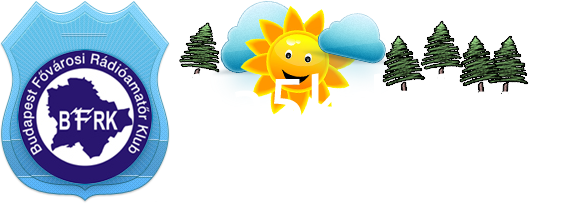Istvan Agg ha5clf / n9eu
Let’s dissect the CEPT Electronic Communications Committee Recommendation T/R 61-01 to understand what the privileges of a non-national CEPT license holder in a national setting are, i.e.: what applies to an amateur radio operator visiting a country intending to operate in the host country…
I will focus on a specific privilege (for the sake of clarification) regarding the usage of four-meter band in Hungary, where it is permitted, by a visiting operator from a country where it is not permitted. The point is not the four-meter band, but the fact that one country may have privileges that others do not, and what are the ramifications for a visiting operator in such a case.
It was recognized, that for a short visit to another country, itwould requireunnecessary and costly bureaucratic process and of course delays issuing a temporary amateur radio operator permit. This is what the Recommendation T/R 61-01 agreement rectifies.The original agreement was approved in Nice 1985 and amended several times, most recently in 2018. So, todayit is possible for radio amateurs from CEPT countries to operate during short visits in other CEPT countries without having to obtaining an individual temporary license from the visited CEPT country.
This article addressesonly a CEPT licensee visiting another CEPT country for short duration, less than three months. The General provisions relating to “CEPT RADIO AMATEUR LICENCE”, pertinent to thisissue are listed specified in T/R 61-01:
“The ‘CEPT radio amateur license’ can be included in the national license or be a special document issued by the same authority and will be drafted in the national language and in German, English and French; it will be valid for non-residents only, for the duration of their temporary stays in countries having adopted the Recommendation, and within the limit of validity of the national license. Radio amateurs holding a temporary license issued in a foreign country may not benefit from the provisions of the Recommendation.”[TR61]
“The license holder shall observe the provisions of the ITU Radio Regulations, this Recommendation and the regulations in force in the country visited. Furthermore, any restrictions concerning national and local conditions of a technical nature or regarding the public authorities must be respected. Special attention should be paid to the difference in frequency allocations to the radio amateur services in the three ITU Regions.”[TR61]
“When transmitting in the visited country the license holder must use his national call sign preceded by the call sign prefix of the visited country as indicated in ANNEX 2 and ANNEX 4. The call sign prefix and the national call sign must be separated by the character “/” (telegraphy) or the word “stroke” (telephony).”[TR61]
Further T/R 61-01 states theequivalencebetweenthe CEPT Licenseandnational licenses.The equivalence between the CEPT license and national licenses in CEPT countries is listed in Annex 2 of the T/R 61-01. One can search on the Internet, looking for the “T/R 61-01” document, and access the full table. Let’s examine Austria and Hungary for the sake of simplicity.
CEPT country Call sign prefix to be used in visited country National licenses equivalent to the CEPT license
Austria OE 1 (old also 2)2
Hungary HA, HG CEPT; old RB, RC, UB, UC

For Austria (subscripted 2) states thatthe existing (old) license classes “1” and “2” have become the new license class “1”. For the license holders with Morse code proficiency (old license class 1), which is from 15 September 2003 no longer a requirement of T/R 61-01. Information regarding Morse code proficiency is added as remark for countries still retaining Morse. So Austrian license level 1 is equivalent to a CEPT (or the old RB, RC, UB, UC) level in Hungary. There are countries that still require Morse code so, operating by telegraphy in those countries requires a license that also grants you the privilege of Morse code in your national country.
Now these are the rules specified, but what does it really mean in a practical sense? An Austrian amateur radio operator may not use frequencies that their national license forbids, such as the 4m-band; yet the Hungarian license that is equivalent with his/her national license permits this privilege. The above recommendations are not conclusive in my reading, so further research was necessary.
Note on T/R 61-01 by G3PJT, Chairman of Radio Regulatory Working Group, IARU Region 1: “The key point is that the operating privileges for the visitor operating under the CEPT License are defined by the country being visited, not the privileges in his own country.” – www.qsl.net/oh2mcn/cept.htm
Also see the International Amateur Radio Union Region 1 Homepage, the federation of national associations of radio amateurs from Europe, Africa, Middle East and Northern Asia. This is what they recommend, almost word-by-word as above (www.iaru-r1.org/index.php/operating-abroad):
· “Check that the national license class qualifies as a CEPT license and that the national license document confirms this.”
· “Check that national license class in the country to be visited is equivalent to the CEPT license.”
· “Check what are the operating privileges and regulations covering the use of that national license class in the country to be visited and use the appropriate prefix, which has to be appended before the national call sign.”
· “The key point is that the operating privileges for the visitor operating under the CEPT License are defined by the country being visited, not the privileges in his own country.”
From the same web site, there are a few relevant Questions and Answers:
· “Q: If I operate from another country, do I obey the rules of my own country or the rules of the country I am visiting?”
· “A: Always obey the rules of the country you are visiting. It is the same in traffic: When in Germany you drive on the right-hand side of the road, when in UK on the left-hand side of the road.”
· “Q: I am a CEPT class license holder, but never passed a CW test. In my home country, I can operate on HF. Can I do the same from another country?”
· “A: If the country you are visiting has adopted the 2003 version of T/R 61-01 and does not specifically ask for Morse proficiency you can operate on HF. If the previous version of T/R 61-01 applies in the country you are visiting, you can only operate above 30MHz.”
The T/R 61-01 does unequivocally state that the operating privileges for the visitor operating under the CEPT License are defined by the country being visited, not the privileges in his own country. Thus, it does not infer anywhere in the recommendation that the privileges of the operator visiting another CEPT country will be the intersection of the individual’s national license and the host country privileges, further limiting the visitor’s privileges. To state it again, the recommendation clearly states that the rules of the visiting country apply.
So, why do I never hear visiting Austrian ham operators on the four-meter band in Hungary?First of all, admittedly I seldom hear anything on that band, but put that aside for a moment. Perhaps, because why would they invest in equipment that they would not use at their home QTH? They do not have the privilege of operating on the 4m-band in Austria. Perhaps, they could use someone else’s equipment in Hungary, but it is a band that opens sporadically, so chances are one would rather spend time where QSOs are almost guaranteed. So, this is why I do not hear Austrian stations operating in Hungary on the 4m-band.
Suppose the Hungarian Media and Broadcast Authority would hear HA/OE9??? on 4m-band in Hungary. They do not need to know the details of Austrian privileges granted to the ham operator, all they need to know, whether the operator is CEPT licensed and operates according to the privileges permitted in Hungary.
Similarly, if a Hungarian CEPT licensee operates in the United States, he or she may operate in between 3.8 to 4.0 MHz, in addition of the 3.5 to 3.8 MHz band. Conversely, a US ham licensee may not operate in this 75m band extension in Hungary, because this frequency span is not permitted in the host country.
t
References
[TR61] Recommendation T/R 61-01, CEPT ECC Electronic Communications Committee, Approved Nice 1985; amended October 2011, Amended Annex 2: January 2015 Amended Annex 4: January 2012, Edition of 5 January 2015.
Istvan Agg ha5clf / n9eu



